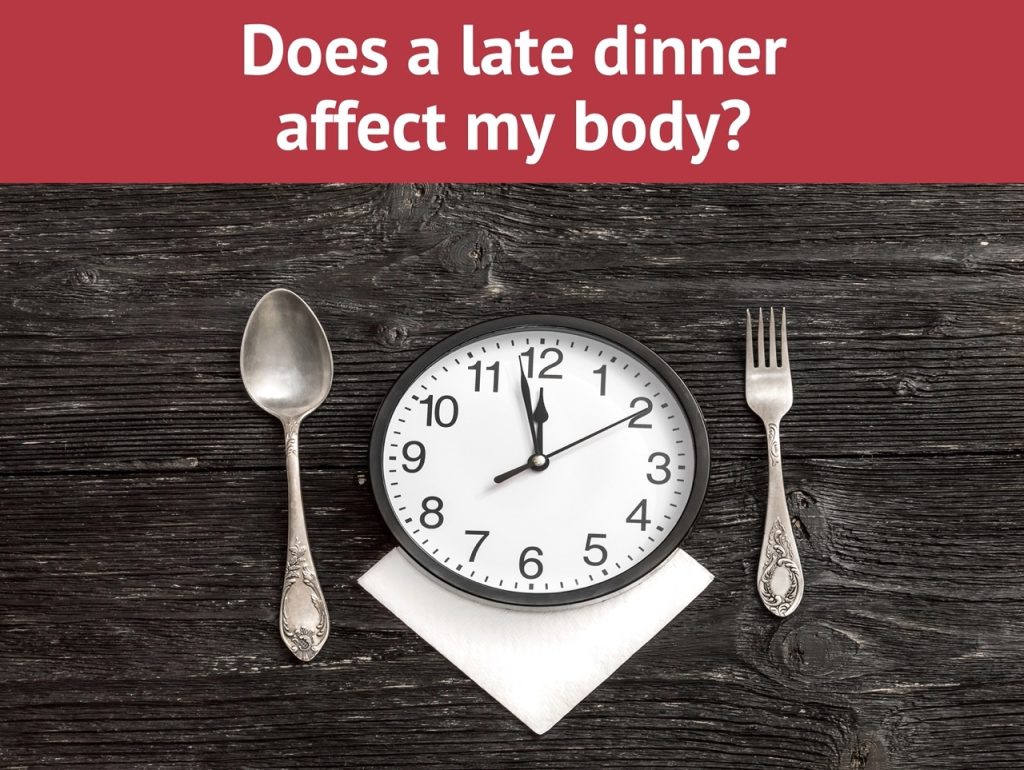As Ramadan started, the full impact of late-night eating can often be felt on the body – bloating, heart burn (acid reflux), lethargy or even as severe as chest pains or discomforts.
Previous studies stated that allocating more calories earlier in the day might help reduce cardiovascular disease, but the size of the research groups lead to inconclusive results. Let’s try and wrap our heads around what the potential impact and risks could be by following the evidence.
What does the research on meal timing show?
There were studies that found an association between late eating patterns and various cardiovascular risk factors—but, as the authors are careful to point out, correlation isn’t necessarily causation. Just because two things happen together does not necessarily mean that one causes the other.
Our bodies have daily (or circadian) rhythms that affect our digestion, metabolism, and hormonal systems. So it’s not a stretch to think the timing of your meals could affect your body’s response to the food. However, what and how much you eat matters just as much as when you eat it.
Before changing the timing of your meals, consider whether it is likely to have a positive or negative impact on the quality of those meals. If the only way you’re going to be able to eat dinner at 6 pm is by stopping at the drive through for fast food on the way home from work, sticking to a strict dinner time regimen may not be effective in this case. If, by contrast, eating dinner at 8 pm means that you have time to prepare a nice meal at home and eat it in a relaxed setting, the benefits far outweigh any potential metabolic risks.
By the same token, if late night eating is causing you to eat more calories than you need, the risk of unwanted weight gain may be more dangerous for your heart than the timing of your food intake.
Eating dinner later in the evening could contribute to weight gain, and also set you up for potential health impacts like higher risk for heart disease, stroke, and diabetes.
Researchers studied 20 healthy volunteers to see how they metabolized meals eaten at 10 p.m. and 6 p.m. All participants went to bed at 11 p.m., and researchers found that blood sugar levels were higher with the later dinner, even when the same meal was eaten on a different day at the earlier time.
On average, the peak blood sugar level was about 18 percent higher, and the amount of fat burned overnight decreased by 10 percent compared to the earlier dinner. Chronically elevated blood sugar levels have been linked to cardiovascular issues and diabetes in previous studies since it can cause inflammation and affect vascular muscle cells.
Long-Term Strategy
A few meals eaten later in the evening, as is typically experienced during Ramadan, won’t have a dramatic effect, it’s more about what you do on a regular basis. Our bodies appreciate routine, so a better strategy is to begin to eat dinner earlier when you can until you can stick to that every night.
This shift also involves thinking about your other meals as well. For instance, some people overeat at dinner because they’ve skipped lunch or waited too long after lunch to have dinner.
There’s no exact timing for each meal, but a general rule is to have breakfast within an hour after waking up, then having lunch four to five hours later, and dinner four to five hours after that. Dieticians often work with patients to find the best possible timing by studying their physical and mental reactions to mealtimes.
Focus on Consistency
Consistency in an eating schedule can bring numerous benefits, such as allowing you to plan your meals. It can also cut down on the kind of frequent snacking that can happen when meals are spaced too far apart. That level of snacking can cause an increase in calories while still leaving you feeling hungry.
Another strategy that’s helpful for creating consistency is to track and write down when you eat and measure the effect it has in other ways, like energy levels, sleep, and mood. For example, you might notice you sleep poorly whenever you eat a few hours later than usual.
Many people experience digestive issues when they eat late in the evening. Not only is the body trying to digest that food when it should be focusing on rest, but you may also experience problems like heartburn and acid reflux simply because of the position of your body. Lying down for hours with a full stomach is not ideal.
What This Means For You
Like any other strategy around food—especially if you’re trying to lose weight or manage an existing health condition—it’s important to see tweaks like these as part of a long-term plan that’s based on improving your health.
That perspective can guide you toward feeling a sense of self-care, rather than a way to create restrictive eating patterns or feel bad not just about what you eat, but also when you eat it.
If you need guidance…
We are committed to our patients and our team concerned about your overall health and the impact your lifestyle may be having on your cardiac problems. Contact our clinic for more information and scheduling information for the next possible consultations with any of our qualified and experienced cardiologists.

